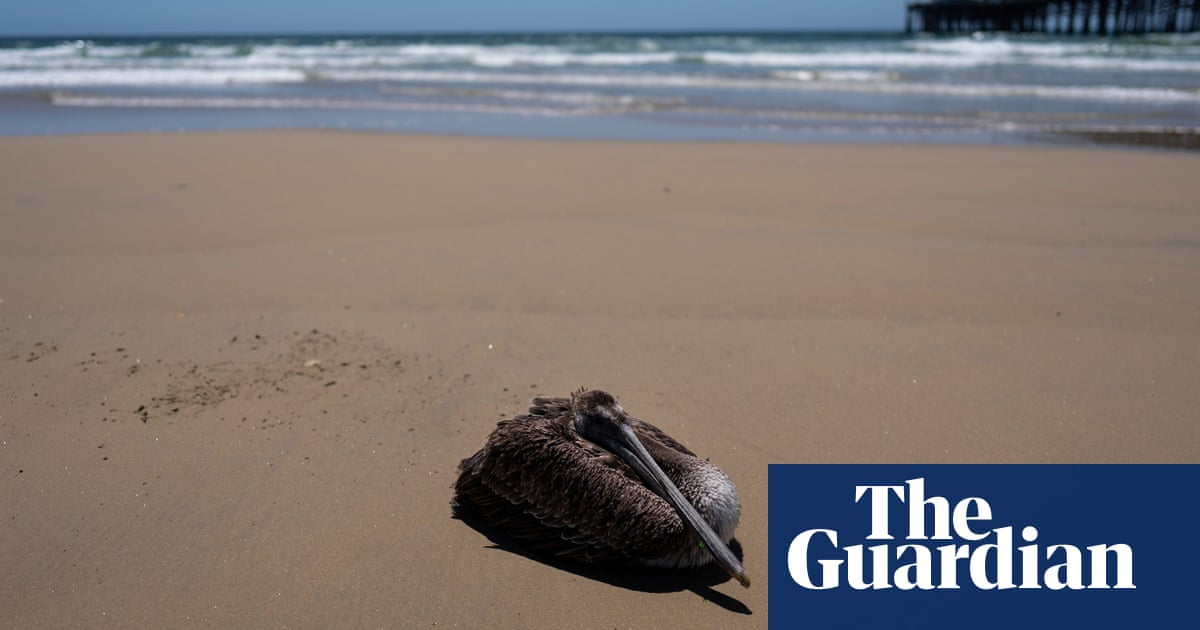Hundreds of starving and stranded brown pelicans have turned up along the California coast in recent weeks in what wildlife advocates have described as a âcrisisâ.
In Newport Beach in southern California, lifeguards came upon two dozen sick pelicans on a pier last week. The Wetlands and Wildlife Care Center in Huntington Beach, the non-profit caring for the animals, said they had treated more than 100 other birds who were anemic, dehydrated and extremely underweight.
âThey are starving to death and if we donât get them into care, they will die,â said Debbie McGuire, the centerâs executive director. âIt really is a crisis.â
Bird Rescue, a non-profit that operates wildlife centers in northern and southern California, reported taking in more than 235 sick pelicans in the past three weeks. At least 40% of the pelicans have significant injuries after becoming entangled in fishing line and hooks, the non-profit said.
The California department of fish and wildlife (CDFW) confirmed in a statement last week that high numbers of the federally protected species are showing signs of malnutrition. The agency said that since late April it has received increased reports of brown pelicans stranded from Santa Cruz county to San Diego county, and that wildlife rehabilitation facilities âbegan admitting an unusually high number of debilitated pelicansâ.
âMost birds are coming in cold, emaciated and anemic â essentially starving to death,â Dr Rebecca Duerr, Bird Rescueâs research and veterinary science director, said in a statement. âMany of them are exhibiting severe injuries â especially from fishing hooks and line.â
Most pelicans in northern California have come from Monterey and Santa Cruz, while birds in southern California have been rescued from unusual places, including a lake at SoFi Stadium and a fire station in Malibu, Bird Rescue said.
Many pelicans have died. The cause is still unclear, though the CDFW said the animals appear to be succumbing to problems related to starvation. Some wildlife experts have pointed out that the birds are malnourished despite the bounty of marine life along the Pacific coast.
In 2022, a similar event saw nearly 800 pelicans admitted into wildlife care facilities â about half of which were released, according to the CDFW.
The agency said it was conducting postmortem exams of the birds who died this year and testing those currently under the care of wildlife rehabilitation centers.
The Wetlands and Wildlife Care Center reported nearly 100 pelicans in its care on Friday. The first step in caring for the sick animals is to warm them, Dr Elizabeth Wood, the centerâs medical director, said in a video.
âThe great news is the vast majority are recovering if we can get them through those first few critical hours of hypothermia,â she said.
The Associated Press contributed to this report



